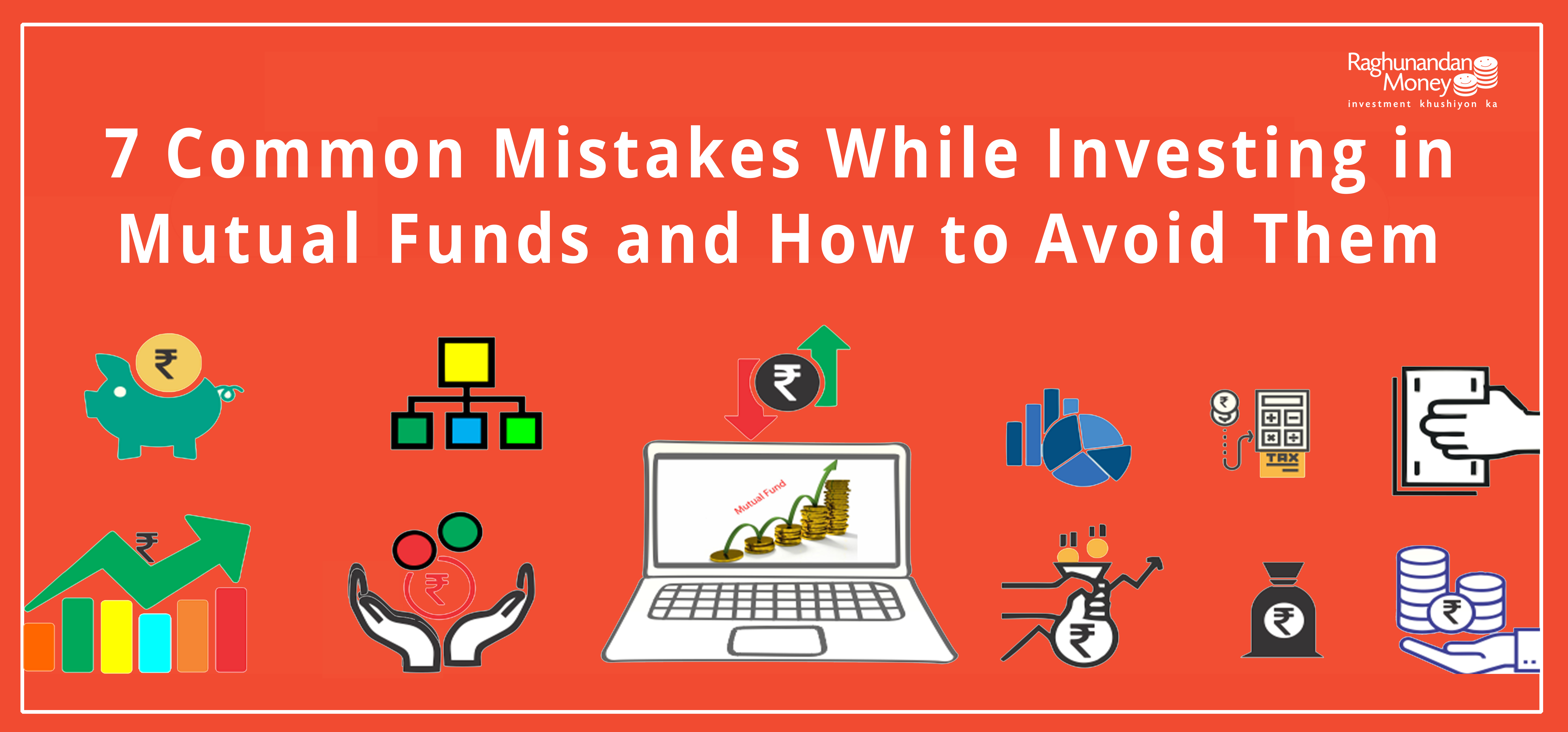Mutual Fund investments have become the talk of the town lately. Many people who earlier preferred investing in traditional investment avenues like PPF and Bank FDs are now rigorously shifting towards investing in Mutual Funds.
If you are someone who lacks good knowledge of analyzing the securities market, then instead of directly investing in the stock market, you should invest in Mutual Fund as they are a lot more safe and convenient.
Mutual fund investment is a wonderful way to meet the desired goal and can be easily started with a minimum investment amount of as low as Rs.500 per month.
It is true that mutual funds are some of the most common and trusted investment options currently in the financial markets. However, any investment avenue that involves your hard-earned money should proceed with extra caution and the same holds true for mutual fund investments as well.
Though mutual fund investments have several advantages to offer to the investors, many investors, especially the novice investors are bound to make mistakes that can dampen their investment objectives. Hence, it is important for you as an investor to be aware of the common mutual fund investment mistakes so that you can avoid them beforehand.
Here are some of the common mutual fund investment mistakes and how they can be avoided by the investors.
7 Common Mutual Fund Investment Mistakes
- Investing without setting goals: Financial goal is an objective which you wish to achieve some years down the line. Many investors have the tendency of jumping into mutual funds when they have surplus cash available with them. However, this is not the most scientific way in which mutual fund investments should be started. Always keep in mind that mutual funds too are a part of your overall financial plan. Thus, before jumping into mutual funds, it is important for you to specify your long term and short term goals or investment objectives. For instance, if you wish to take a trip abroad in some years, the best choice is to invest in Debt Funds. On the other hand, if you plan to retire at the age of 30 it is suitable for you to set up a SIP in Equity Fund which will generate higher returns for you over a specific period.
- Missing on conducting appropriate research: Investments in financial markets can turn down to be a bad decision if they are made without conducting proper research. Similarly, before investing in Mutual Funds it is important for you to understand the fund type, the exit load, the historical returns from the fund under consideration, asset size, expense ratio, etc. It is also essential for you to have a thorough understanding of your risk-return profile as an individual investor before you put your savings into a mutual fund scheme.
- Timing the market with mutual funds: Mutual funds are commonly looked at as an alternative to buying direct equities by many investors, which leads them to miss on the bigger picture. A majority of investors put their money in mutual funds with the objective of creating wealth systematically in the long run. Hence, there is no point in trying to time the market as not practically possible and meaningful to time the market in the long run. When talking about mutual fund investments the time spent in the market is more important than timing the market.
- Reacting to short-term market fluctuations: Most investors are scared when they witness even a slight fluctuation in the stock market. A majority of the investors are scared when they see a bearish market trend and start making impulsive decisions. Investors need to understand that mutual funds are meant for generating long term wealth. Thus, it is always advisable for investors to not react to sharp market connections or short term volatility in the market. Furthermore, it is also advisable to not trust the stock market analysts and business channels blindly when talking about mutual fund investments. The key here is to keep yourself away from the noise to increase your chances of making larger returns from mutual funds.
- Investing in dividend schemes for tax benefits: A common notion among mutual fund investors is that dividends are tax-free in the hand of the investors. As a result, it makes more sense for investors to put their money in dividend schemes. Though it is a common notion, it is wrong for two reasons. First, as you keep taking money out of your fund via a dividend, your process of wealth creation is delayed. Second, dividends are subject to dividend distribution tax, which in turn reduces the amount of return earned on your investment.
- Not diversifying your portfolio: Many investors think that investing in various mutual fund schemes of a particular type leads to portfolio diversification. However, it is important for you to understand that each mutual fund scheme is a portfolio of diversified securities. Thus, investing all your money in various schemes of a particular type is not portfolio diversification but portfolio overlapping at a higher expense ratio. Hence, it is important to invest in 2 to 3 different schemes to achieve diversification.
- Not monitoring the performance periodically: Among all the investors who regularly invest in mutual funds, only a few of them take the pain to regularly track the performance of their investments periodically. Periodically reviewing the performance of your mutual fund portfolio keeps you aligned with your financial goals. Lack of periodic evaluation of funds results in junk investments in your portfolio which keep the mean return from your portfolio down.
Final Thoughts
AMFI came up with a very popular campaign “Mutual Funds Sahi Hai” two years back with the objective of creating awareness about mutual funds among the investors and to bring more investors to the stock market.
However, this does not mean that an investor can follow the scheme blindly and make no mistakes. Mutual funds, just like any other investment avenue, are subject to market risks and thus it is important for the investors to take all the necessary cautions before investing in mutual funds. Also, it is important for investors to keep in mind that mutual funds help in generating wealth in long term and hence are not a short-term wealth creation investment option. Conduct the required research before you put your money in mutual funds and set your financial goals in advance and you are good to go.
About Author

Stock Trading Now trade in ₹9 Per Order or ₹ 999 Per Month Plans.
Future & Options Access F&O contracts with advanced tools for hedging and speculation.
Currency Trading Trade in major currency pairs and manage forex exposure efficiently.
Commodity Trading Diversify Trading with MCX & NCDEX by Trading in Gold, Silver, Base Metals, Energy, and Agri Products.
Margin Trading Funding Boost your buying power with upto 5X, Buy now Pay Later
Algo Trading Back test, Paper Trade your logic & Automate your strategies with low-latency APIs.
Trading View Leverage Trading View charts and indicators integrated into your trading platform.
Advanced Options Trading Execute multi-leg option strategies with precision and insights.
Stock Lending & Borrowing Earn passive income by lending stocks securely through SLB.
Foreign Portfolio Investment Enable NRIs and FPIs to invest in Indian markets with ease and compliance.
IPO Invest in upcoming IPOs online with real-time tracking and instant allotment updates.
Direct Mutual Funds 0% Commissions by investing in more than +3500 Direct Mutual Fund Scheme.
Corporate FDRs Earn fixed returns with low-risk investments in high-rated corporate fixed deposits.
Stocks SIPs Build long-term wealth with systematic investment plans in top-performing stocks.
Bonds & NCDs Access secure, fixed-income investments through government and corporate bond offerings.
Depository Services Safely hold and manage your securities with seamless Demat and DP services with CDSL.
Journey Tracing our growth and milestones over time.
Mission & Vision Guided by purpose, driven by long-term vision.
Why RMoney Platform Smart, reliable platform for all investors' needs.
Management Experienced leadership driving strategic financial excellence.
Credentials Certified expertise with trusted industry recognition.
Press Release Latest company news, updates, and announcements.
Testimonials Real client stories sharing their success journeys.
7 Reasons to Invest Top benefits that make investing with us smart.
SEBI Registered Research Trusted insights backed by SEBI-compliant research.
Our Technology Advanced tools enabling efficient online trading.
Calculators Access a suite of smart tools to plan trades, margins, and returns effectively.
Margin Calculator Instantly check margin requirements for intraday and delivery trades.
MTF Calculator Calculate MTF funding cost upfront to ensure full transparency before placing a trade.
Brokerage Calculator Know your exact brokerage charges before placing any trade.
Market Place Explore curated investment products and trading tools in one convenient hub.
RMoney Gyan Enhance your market knowledge with expert blogs, videos, and tutorials.
Performance Tracker Track our research performance with full transparency using our performance tracker.
Feedback Share your suggestions or concerns to help us improve your experience.
Downloads Access important forms, software, and documents in one place.
Locate Us Find the nearest RMoney branch or service center quickly.
Escalation Matrix Resolve issues faster with our structured support escalation process.
Back Office Log in to view trade reports, ledger, and portfolio statements anytime.
Account Modification Update personal or bank details linked to your trading account.
Fund Transfer Transfer funds instantly online with quick limit updation to your trading account.
Bank Details View our registered bank account details for seamless transactions by NEFT, RTGS or IMPS.
How to Apply IPO Step-by-step guide to apply for IPOs using your trading account.
RMoney Quick Mobile App Trade on-the-go with our all-in-one mobile trading app.
RMoney Quick login Quickly access your trading account through the RMoney Quick web-based trading.
RMoney Rocket Web Version Experience powerful web-based trading with advanced tools for algo traders.
RMoney Rocket Mobile Version Trade anytime, anywhere with our feature-rich mobile trading platform.




















